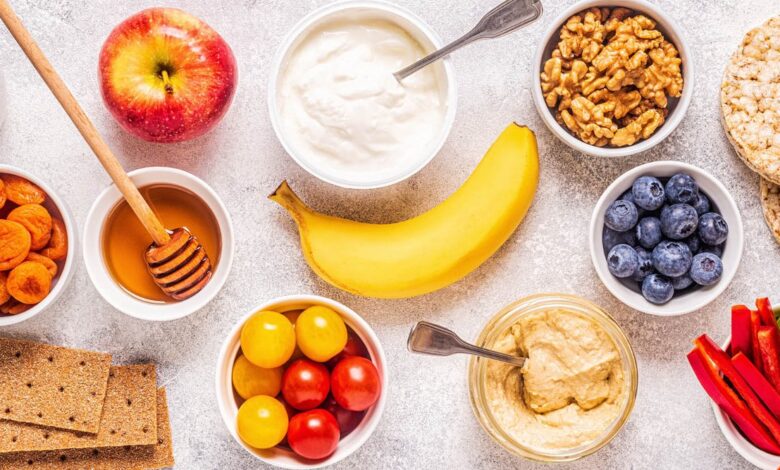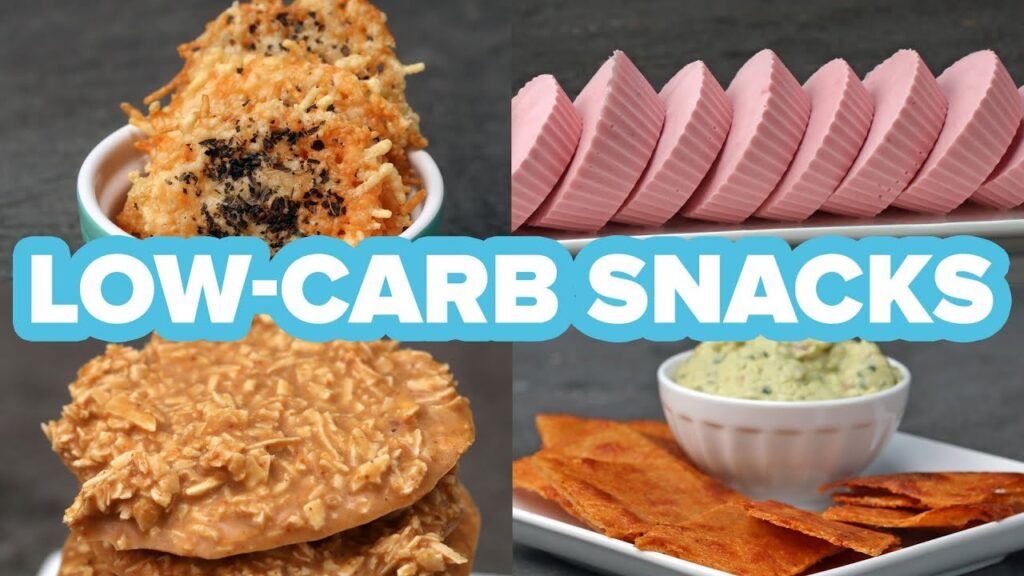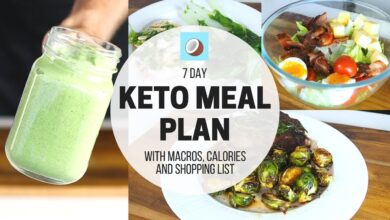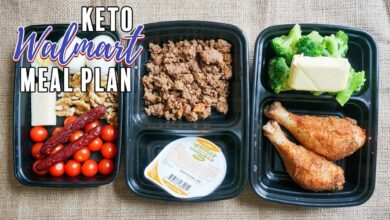
But what if I told you that snacking, when done right, can actually help you lose weight? Yes, snacking smartly can keep your metabolism fired up, stabilize your blood sugar, and keep cravings at bay — all crucial for shedding those stubborn pounds.
7 Best Snacks for Effective Weight Loss
Introduction
If you’ve ever tried to lose weight, you know how tricky hunger can be. It’s that nagging feeling between meals that sometimes leads to grabbing just about anything within reach — often high-calorie, low-nutrition snacks that can derail your progress. But what if I told you that snacking, when done right, can actually help you lose weight? Yes, snacking smartly can keep your metabolism fired up, stabilize your blood sugar, and keep cravings at bay — all crucial for shedding those stubborn pounds.
This post reveals the 7 best snacks for effective weight loss — snacks that not only taste great but are packed with nutrients that help you feel fuller longer, boost fat-burning, and improve overall health. Whether you’re a busy professional, a student, or someone looking to adopt a healthier lifestyle, these snacks are easy to incorporate and delicious enough to make dieting feel less like a chore.
So, let’s jump right in and explore how strategic snacking can be your secret weapon on the weight loss journey!
Why Snacking Matters in Weight Loss
Before we list the snacks, let’s get clear on why snacking matters so much. You might be thinking: “Isn’t it better to just eat three meals a day and avoid snacks?” Not necessarily. Here’s why:
- Prevents Overeating at Meals: When you’re starving, it’s easy to devour large portions, often consuming more calories than needed. Healthy snacks help avoid that extreme hunger.
- Keeps Metabolism Active: Eating small, nutrient-rich snacks throughout the day can prevent your metabolism from slowing down, a common issue when you skip meals.
- Controls Blood Sugar Levels: Regular snacking helps maintain balanced blood sugar, preventing energy crashes and mood swings that often trigger cravings for sugary or fatty foods.
- Improves Energy and Focus: Eating smart snacks keeps your energy steady and your mind sharp — perfect for a productive day.
According to a 2018 study published in the Journal of Nutrition, incorporating healthy snacks rich in protein and fiber can promote satiety and reduce overall calorie intake. So, snacking isn’t the enemy — it’s how and what you snack on that makes all the difference.
What Makes a Snack Effective for Weight Loss?
Not all snacks are created equal. Some can help accelerate your weight loss, while others just add empty calories. Here are the key qualities to look for in a snack that supports your fat-burning goals:
- High Protein Content: Protein is king when it comes to satiety. It helps preserve muscle mass during weight loss and requires more energy to digest, boosting your metabolism (thermogenic effect).
- Rich in Fiber: Fiber slows digestion and keeps you feeling full for longer, reducing the urge to snack excessively.
- Low in Added Sugars and Unhealthy Fats: Excess sugar spikes insulin, promotes fat storage, and leads to crashes in energy. Trans fats and excessive saturated fats increase inflammation and weight gain risk.
- Moderate Calories: Weight loss requires a calorie deficit. Even healthy snacks can add up, so portion control is essential.
- Nutrient-Dense: Beyond calories, the snack should supply vitamins, minerals, and antioxidants to support overall health and energy.
Now, let’s get to the tasty, satisfying snacks that tick all these boxes!
Snack #1: Greek Yogurt with Berries
Benefits
Greek yogurt is a protein powerhouse, containing about 15-20 grams of protein per 6-ounce serving — almost double what regular yogurt offers. This high protein content helps you stay full, reduce cravings, and maintain lean muscle mass while losing fat. Plus, Greek yogurt is rich in probiotics, which support gut health — and emerging research links gut microbiome diversity with healthy weight management.
Berries such as blueberries, strawberries, and raspberries add natural sweetness plus a generous dose of antioxidants, vitamins, and fiber. The fiber helps slow sugar absorption, keeping your blood sugar stable.
How to Prepare
- Take ½ cup of plain, non-fat Greek yogurt.
- Top with ½ cup of mixed berries (fresh or frozen).
- Add 1 teaspoon of chia seeds or flaxseeds for extra omega-3 fatty acids and fiber.
- Optionally, drizzle a small amount of raw honey if you want a touch of sweetness.
Pro Tips
- Avoid flavored yogurts as they often contain added sugars.
- Look for brands with live and active cultures for maximum probiotic benefits.
- For vegan alternatives, try coconut or almond milk-based yogurts fortified with protein.
Snack #2: Almonds and Nuts Mix
Why Nuts Are Great
Nuts are nature’s perfect snack — portable, shelf-stable, and packed with nutrients. Almonds, walnuts, pistachios, and cashews deliver healthy monounsaturated fats that promote heart health and boost fat metabolism. A study published in The American Journal of Clinical Nutrition found that nuts help increase feelings of fullness and reduce overall calorie intake in subsequent meals.
Nuts also contain magnesium, which plays a role in over 300 biochemical reactions including glucose control and energy production. Walnuts, in particular, are high in omega-3 fatty acids, anti-inflammatory compounds that help combat obesity-related inflammation.
Portion Control Tips
- Limit yourself to about 1 ounce (roughly 23 almonds or a small handful) per snack.
- Avoid heavily salted or sugar-coated nuts, which can negate health benefits.
- Try raw or dry-roasted varieties without added oils.
Snack Ideas
- Mix almonds with dried unsweetened cranberries and pumpkin seeds.
- Pair a handful with a small piece of fruit like an apple for added fiber and vitamins.
Snack #3: Veggies with Hummus
Nutritional Value
Vegetables are low in calories but high in fiber, vitamins (like vitamin C and A), minerals, and antioxidants. Hummus, made primarily from chickpeas, adds protein, fiber, and healthy fats to make this combo a perfectly balanced snack that satisfies hunger and supports digestion.
Fiber in vegetables helps regulate blood sugar and improves gut motility, while the protein and healthy fats in hummus slow digestion for lasting satiety.
Best Veggies for Snacking
- Carrot sticks
- Cucumber slices
- Bell pepper strips
- Cherry tomatoes
- Celery sticks
How to Prepare
- Portion about 3 tablespoons of hummus per serving.
- Use fresh, crunchy veggies as dippers for a satisfying texture contrast.
Bonus
- You can easily prep veggie sticks in advance and keep hummus ready for quick snacking.
- Opt for store-bought hummus without preservatives or make your own with olive oil, lemon juice, garlic, and tahini.
Snack #4: Hard-Boiled Eggs
Protein Power
Eggs are a complete protein source, containing all nine essential amino acids. They provide around 6 grams of protein per egg, plus vitamins D and B12, choline (important for brain health), and antioxidants like lutein.
Eating protein-rich snacks like hard-boiled eggs has been shown in studies to reduce appetite and decrease calorie intake at the next meal.
Easy Snack Hacks
- Boil eggs in bulk at the beginning of the week.
- Season with a pinch of salt, pepper, or smoked paprika for extra flavor.
- Pair with a few baby carrots or cucumber slices for a crunchy contrast.
Health Considerations
- Eggs are nutrient-dense but moderate cholesterol intake if you have specific health concerns. Most recent research supports eggs as safe for most people when eaten in moderation.
Snack #5: Cottage Cheese and Pineapple
Benefits of Cottage Cheese
Cottage cheese is rich in casein protein — a slow-digesting protein that releases amino acids steadily over time, keeping you full longer. It also provides calcium, which research suggests may aid in fat breakdown.
Flavor Combinations
- Add fresh pineapple chunks for natural sweetness and vitamin C.
- Other fruit options include peaches, melon, or berries.
- Sprinkle cinnamon or chopped nuts on top for added flavor and texture.
How to Choose Cottage Cheese
- Opt for low-fat or non-fat varieties to reduce calorie intake.
- Check labels to avoid brands with added sugars or preservatives.
Snack #6: Apple Slices with Peanut Butter
Combining Fiber and Healthy Fats
Apples are a great source of soluble fiber, which helps slow digestion and supports heart health. Peanut butter adds protein and heart-healthy fats that help stabilize blood sugar and increase satiety.
Avoiding Sugar Pitfalls
- Choose natural peanut butter that contains only peanuts (and maybe a pinch of salt). Avoid varieties with added sugars, hydrogenated oils, or additives.
- Watch your peanut butter portion — stick to about 1 tablespoon per snack to control calories.
Snack Ideas
- Sprinkle apple slices with cinnamon for a tasty twist.
- Use other nut butters like almond or cashew if you prefer.
Snack #7: Roasted Chickpeas
Crunchy and Filling
Chickpeas are a great plant-based protein and fiber source. Roasting transforms them into a crunchy, savory snack that’s perfect when you crave something salty without the junk.
DIY Roasted Chickpeas Recipe
- Preheat oven to 400°F (200°C).
- Rinse and drain one can of chickpeas, pat dry.
- Toss with 1 tablespoon olive oil and spices (paprika, cumin, garlic powder, chili flakes).
- Spread on a baking sheet in a single layer.
- Roast for 20-30 minutes until crispy, shaking halfway through.
Storage Tips
- Store in an airtight container to keep crunchy for several days.
- Great for on-the-go snacking or adding crunch to salads.
Tips to Maximize Weight Loss While Snacking
- Plan Ahead: Prep snacks at the start of the week to avoid unhealthy grabs.
- Pair Protein with Fiber: This combo maximizes fullness and stabilizes blood sugar.
- Mind Portions: Use measuring cups or a scale to avoid overeating healthy snacks.
- Stay Hydrated: Sometimes thirst mimics hunger. Drink water before reaching for a snack.
- Listen to Your Body: Snack only when genuinely hungry, not out of boredom or habit.
- Choose Whole Foods: Processed snacks often contain hidden sugars and unhealthy fats.
- Combine Snacks with Movement: A short walk or stretching after snacking aids digestion and metabolism.
Common Snacking Mistakes to Avoid
- Eating Mindlessly: Eating in front of screens can lead to overconsumption without realizing it. Practice mindful eating.
- Relying on “Low-Fat” or “Diet” Snacks: Many are high in sugars or artificial ingredients, which can backfire.
- Ignoring Hunger Signals: Eating when not hungry just adds unnecessary calories.
- Skipping Meals and Over-Snacking: Balance is key — snacks are supplements, not meal replacements.
- Not Checking Labels: Some “healthy” snacks are calorie bombs in disguise.
How to Incorporate Snacks Into Your Daily Routine
Finding the right snack timing can be a game-changer. Here’s a sample snacking schedule to keep hunger in check:
- Mid-Morning (10-11 AM): Greek yogurt with berries or almonds.
- Mid-Afternoon (3-4 PM): Veggies with hummus or hard-boiled eggs.
Adjust timing based on your meal schedule and personal hunger cues. Always carry a healthy snack with you to avoid impulse purchases.
Benefits of Balanced Snacking Beyond Weight Loss
Healthy snacks do more than help you drop pounds. They:
- Support Muscle Recovery: Protein-rich snacks aid muscle repair, especially important if you work out.
- Improve Cognitive Function: Balanced blood sugar from smart snacks supports focus and memory.
- Boost Immune System: Nutrient-dense snacks supply vitamins that strengthen immunity.
- Enhance Mood: Avoiding blood sugar crashes keeps mood stable and reduces irritability.
Read Also What Are Low Carb Snacks for Weight Loss?
Conclusion
Snacking doesn’t have to be the villain in your weight loss story. When you choose nutrient-packed, protein and fiber-rich snacks like Greek yogurt with berries, almonds, veggies with hummus, or roasted chickpeas, you’re fueling your body to burn fat, curb cravings, and stay energized. Remember, it’s all about balance, portion control, and mindful choices. Try incorporating these 7 best snacks for effective weight loss into your daily routine and watch your energy soar while the pounds melt away.
Frequently Asked Questions (FAQs)
1. Can snacking actually help with weight loss?
Yes! Healthy snacks help control hunger, stabilize blood sugar, and prevent overeating at meals, making weight loss easier and more sustainable.
2. What’s the best time to eat snacks for weight loss?
Mid-morning and mid-afternoon are ideal to keep energy levels steady and prevent extreme hunger before meals.
3. Are nuts good or bad for weight loss?
Nuts are excellent for weight loss when eaten in moderation due to their healthy fats, protein, and fiber content.
4. Can I snack at night without gaining weight?
Yes, if you choose light, nutrient-dense snacks like Greek yogurt or veggies with hummus and avoid heavy or sugary foods.
5. How do I avoid unhealthy snacking habits?
Plan your snacks, practice mindful eating, stay hydrated, and choose whole, minimally processed foods to stay on track.
Relevant Links for Further Reading
- Healthline: Best Healthy Snacks for Weight Loss
- Harvard Health: Snacking and Weight Loss
- Mayo Clinic: Weight Loss and Diet Tips







